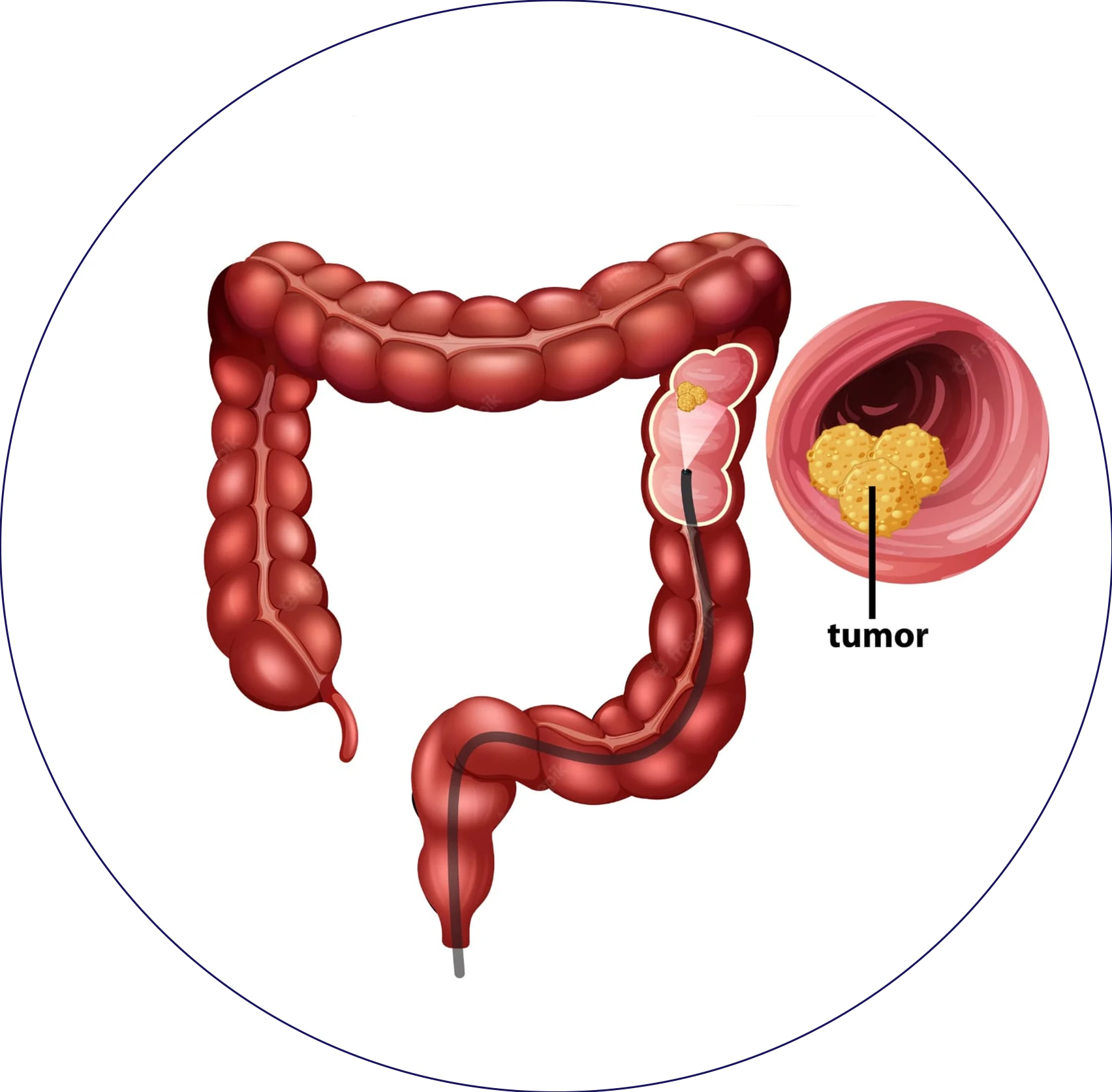Colorectal Cancer
Colorectal Cancer
The digestive system is where the condition known as malignant colon development first appears (colon). The digestive system’s colon is its last piece. Typically, older persons with a history of colon cancer are affected. However, it can occur at any time in life. Typically, it starts as little polyps in the colon, which are benign (harmless) collections of cells. These polyps could someday turn into malignant colon growths. Small polyps might have few negative consequences. To avoid colon disease by locating and eliminating polyps before the development of malignant growths, doctors advise routine screening tests. If colon disease does arise, numerous treatments, such as surgical procedures, radiation therapy, and pharmacological therapies, are available to help control it.

Symptoms
- A persistent change in your bowel habits, including diarrhea or constipation or a change in the consistency of your stool
- Rectal bleeding or blood in your stool
- Persistent abdominal discomfort, such as cramps, gas or pain
- A feeling that your bowel doesn’t empty completely
- Weakness or fatigue
- Unexplained weight loss
Causes
Colon cancer prevention for people with a high risk
Usually, DNA alterations in normal colonic cells are what causes colon cancer to develop (mutations). A cell’s DNA has a collection of instructions that tell it what to do. Healthy cells in your body divide and expand in a planned manner to maintain normal physiological function. However, even if new cells are not needed, when a cell’s DNA is damaged and develops cancer, it continues to divide. As the cells come together, a tumor is formed. Over time, the cancer cells may disperse and devour nearby healthy tissue, destroying it. Additionally, cancerous cells may travel to different parts of the body and settle there (metastasis).
